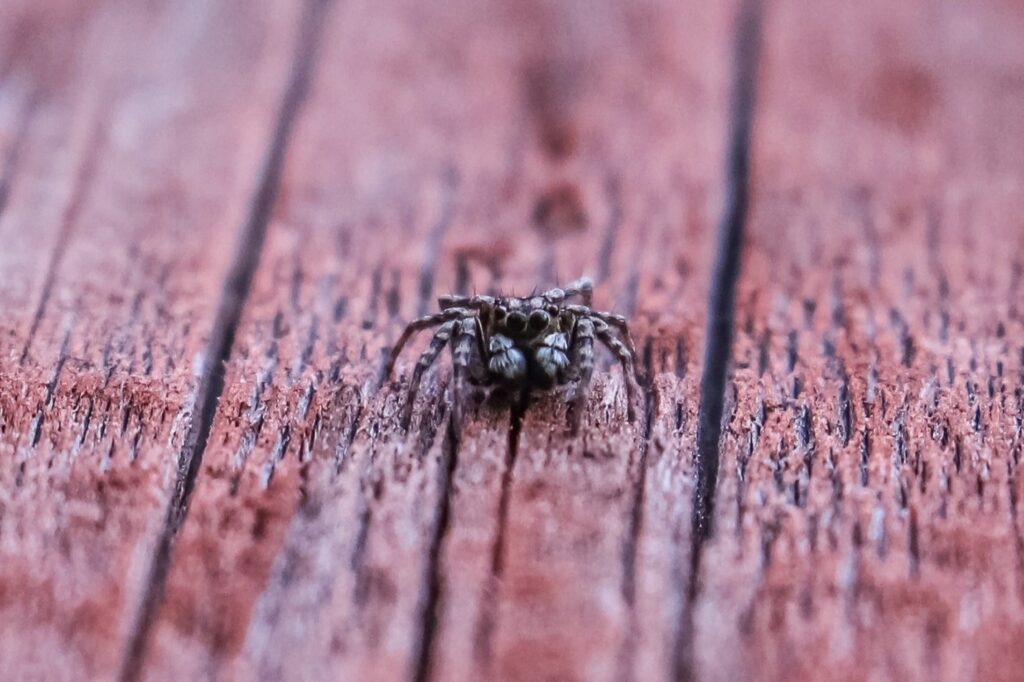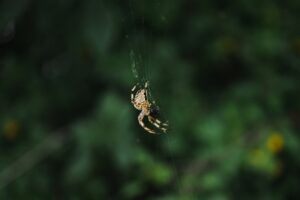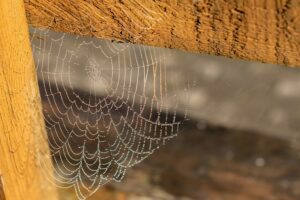Discovering spiders in your Atlanta basement can be disconcerting. Not only can these eight-legged creatures provoke unease, but certain species can pose health risks to you and your family. That’s why it’s so important to maintain a safe, spider-free environment.
Here, we delve into the different spider species found in Atlanta basements, potential health risks associated with infestations, signs to watch for, and practical tips for effective prevention. So you don’t want to miss the rest of this article!
What Are The Most Common Types Of Spiders Found In Basements In Atlanta?
In your local area in Atlanta, GA, several spider species can find their way into your basement. Here are some of the most prevalent ones:
Brown Recluse:
This spider, known for its violin-shaped marking, has a light brown color. The brown recluse is found in secluded areas as it prefers dark, quiet spaces, and tends to stay hidden in clutter or behind objects.
Black Widow:
Black widows are shiny black with a distinct red hourglass shape on the underside of the abdomen. They prefer dark, undisturbed areas and their webs often appear messy and irregular.
Cellar Spider:
Also known as daddy-long-legs, these spiders have long, thin legs and small bodies. They are pale yellow to light brown and construct messy, irregular webs in corners or high on walls. They are not venomous to humans and typically prey on other spiders.
Wolf Spider:
Wolf spiders are usually larger, brown or gray in color, and have a distinct eye pattern consisting of two large eyes in the middle and smaller eyes on the sides. They actively hunt for prey and do not build webs. Wolf spiders often wander into basements seeking shelter.
House Spider:
Commonly found indoors, house spiders are small to medium-sized with a yellowish-brown abdomen and darker markings. They create tangled webs in corners, along ceilings, or behind furniture.
When trying to identify a spider species, consider the size, coloration, distinctive markings, behavior, and web structure. Be careful when handling or approaching any spider, especially if you’re unsure of its species, as some can be venomous.
What Are The Potential Health Risks Of A Spider Infestation In Your Home?
Spider infestations in basements can pose various health risks to household members. While most spiders are not harmful to humans and are beneficial in controlling other pests, some species can cause health issues.
Here are potential health risks associated with spider infestations:
Spider Bites:
Most spider bites are harmless and result in minor skin irritation, redness, or swelling. However, bites from venomous spiders like the brown recluse or black widow can cause severe reactions in some individuals.
Allergic Reactions:
Some individuals may be allergic to spider venom, which results in more severe reactions to spider bites. These allergic reactions can range from localized swelling and itching to respiratory issues and systemic symptoms like difficulty breathing, dizziness, or anaphylaxis in rare cases.
Psychological Impact:
For some individuals, the presence of spiders in large numbers, even non-venomous ones, can cause psychological distress. This psychological impact can lead to anxiety, stress, or even phobias (arachnophobia), and can affect daily life and well-being.
It’s essential to be always cautious around spider infestations, especially if you suspect the presence of venomous species. Also, taking preventive measures, such as wearing gloves when handling stored items, clearing clutter, and sealing entry points, can reduce the risk of encounters with spiders.
Common Signs Of A Spider Infestation In The Basement
Here are various signs that indicate you have a spider infestation in your basement:
Spider webs:
The most obvious sign of a spider infestation is the presence of webs. Spiders construct webs to catch prey, so finding multiple webs in corners, along walls, or in hidden areas of the basement indicates their presence. Different spider species build distinct types of webs, ranging from messy cobwebs to organized orb-shaped webs.
Egg sacs:
Spiders lay eggs in silk sacs, which are often seen near their nests or in sheltered spots. These sacs can be small and white, beige, or brown in color, depending on the species. Finding multiple egg sacs around the basement suggests an active spider population.
Sightings of spiders:
Spotting live spiders in the basement is an obvious indication of an infestation. Observing spiders of varying sizes, colors, or species within a short period is a clear sign that they have established a habitat in your house.
Carcasses or shed exoskeletons:
Spiders molt as they grow, leaving behind shed exoskeletons or carcasses. Finding these residuals in corners, on window sills, or in stored items indicates an ongoing presence of spiders.
Prey capture:
Check for trapped insects or other prey caught in spider webs. A high number of insects caught in webs indicates an active spider population feeding on them, suggesting an infestation.
Nesting sites:
Spiders prefer dark, secluded, undisturbed areas for nesting or hideouts, for example, behind boxes, in stored items, under furniture, and in ceiling corners.
Increased spider activity:
A sudden increase in spider sightings or activity, particularly during certain seasons or weather changes, could indicate an infestation. They might seek shelter indoors during colder months or rainy seasons.
Visible droppings or silk trails:
Spider droppings, often appearing as small, dark specks or stains, might be visible near their nesting areas. Additionally, some species leave silk trails as they move, which can be seen along walls or across surfaces.
Regular inspections and vigilance are crucial in identifying signs of a spider infestation in basements. So if you detect any signs of an infestation, be sure to take proactive measures as outlined below.
Strategies For Preventing Spider Infestations In Your Basement
Now, let’s look at some practical strategies to prevent spider infestations in the basement:
Seal entry points
Inspect the basement for any cracks, gaps, or openings in walls, windows, doors, and foundation. Seal these entry points using caulk, weather stripping, or sealants to prevent spiders from entering.
Declutter and clean regularly
Spiders thrive in cluttered and dusty areas. Declutter your basement by removing unnecessary items, organizing stored goods in airtight containers, and regularly vacuuming or sweeping to eliminate webs, eggs, and hiding spots.
Reduce moisture
Spiders are attracted to moisture. Use a dehumidifier to maintain optimal humidity levels in the basement and fix any leaks or moisture issues promptly. Ensure proper ventilation to discourage spider infestations.
Install screens and tight-fitting covers
Install mesh screens on windows, vents, and openings to prevent spiders from entering the basement. Use tight-fitting covers on vents and drains to block spider access.
Outdoor maintenance
Keep the perimeter of the house clean by trimming bushes, trees, and shrubs away from the foundation. This prevents spiders from using vegetation as a bridge to access the house. Additionally, remove outdoor debris, woodpiles, rocks, or leaves near the house. Spiders can hide in these materials and eventually find their way indoors.
Regular inspections
Conduct regular inspections of the basement to catch early signs of spider activity. Address any potential issues immediately to prevent an infestation from taking hold.
Use natural deterrents and pest control products
Consider using repellents or pesticides specifically labeled for spiders. Spraying natural deterrents like essential oils around potential entry points or infestation-prone areas can also repel spiders.
If the spider infestation in your basement persists or if you’re dealing with venomous spiders, seek assistance from a professional pest control company like Peachtree Pest Control. Our technicians can come and identify the root cause of the infestation and provide targeted treatments to eliminate spiders effectively.
For Atlanta residents facing spider infestations, Peachtree Pest Control company stands as a reliable solution. Our expertise, tailored services, and commitment to pest-free environments make us an ideal choice for effectively managing spider infestations.
Remember that early detection and preventive measures are key to maintaining a spider-free environment in your basement and ensuring the safety and comfort of your home. Don’t hesitate to reach out to our specialists when safeguarding your home against these unwelcome guests.


